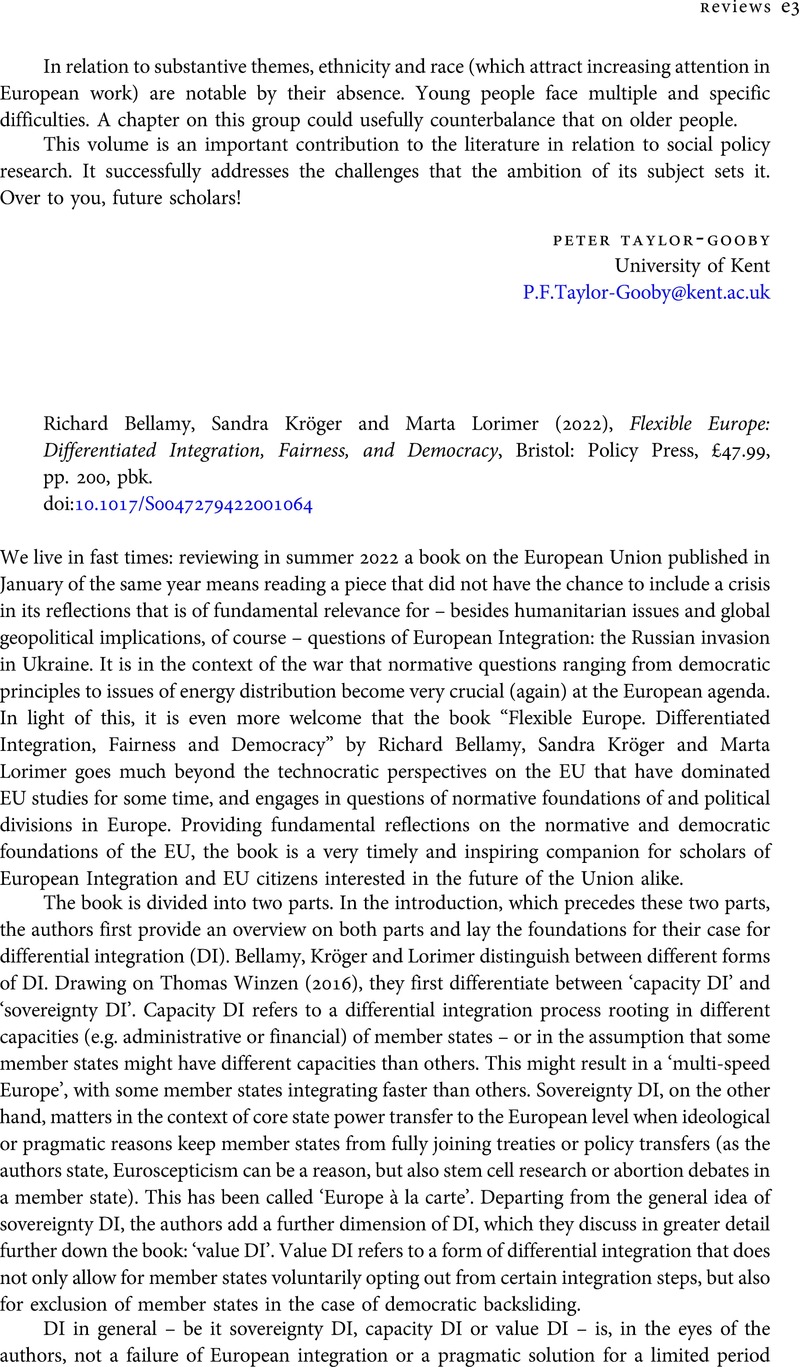No CrossRef data available.
Article contents
Richard Bellamy, Sandra Kröger and Marta Lorimer (2022), Flexible Europe: Differentiated Integration, Fairness, and Democracy, Bristol: Policy Press, £47.99, pp. 200, pbk.
Review products
Richard Bellamy, Sandra Kröger and Marta Lorimer (2022), Flexible Europe: Differentiated Integration, Fairness, and Democracy, Bristol: Policy Press, £47.99, pp. 200, pbk.
Published online by Cambridge University Press: 23 January 2023
Abstract
An abstract is not available for this content so a preview has been provided. Please use the Get access link above for information on how to access this content.

Information
- Type
- Book Review
- Information
- Copyright
- © The Author(s), 2023. Published by Cambridge University Press
References
Schmidt, V. A. (2013), Democracy and legitimacy in the European Union revisited: Input, output and ‘throughput’, Political studies, 61(1): 2–22.CrossRefGoogle Scholar

